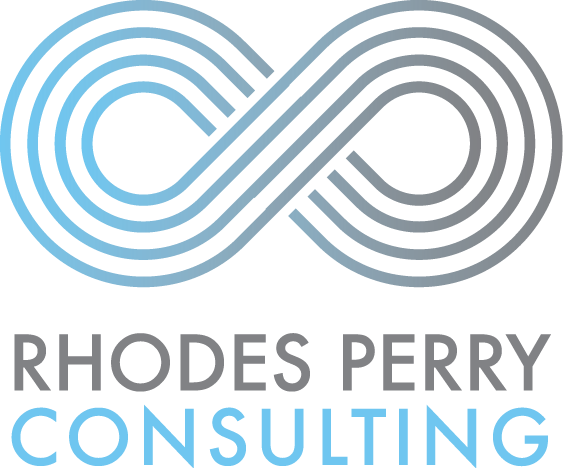
Blog
The Belonging at Work Blog offers every day, simple actions you can take to build a sense of psychological safety, trust, and belonging at work.
What's the difference between the golden rule and the platinum rule?
Decentering yourself.
The golden rule asks you to treat others in a way in which you want to be treated, while the platinum rule asks you to treat others in a way in which they want to be treated.
The platinum rule reminds you that the pathway to building more safety, trust, and belonging at work begins by becoming curious about others.
In this spirit, ask yourself: who am I intentionally including in this work, and who am I unintentionally excluding?
According to the US Department of Labor, 47 million Americans voluntarily left their jobs in 2021. The number one reason these employees joined the Great Resignation was because they worked for employers that fostered toxic cultures – cultures where exclusion and othering thrive.
If you too have joined the Great Resignation and are seeking your next great career opportunity, you likely are also a part of the “Great Reflection.” This collective reflection period encourages many of us to reimagine the kind of culture we desire – one where our values fully align with our employers’ values.
You will learn 5 simple actions you can take to earn your next great career opportunity. As you listen, you may want to write out your top 5 – 10 personal values that guide how you live and work. Knowing your personal values will help you get the most out of today’s content, as you identify prospective employers that prioritize building more safety, trust, and belonging at work.
Learn why the future of work will be increasingly queer, and recognize what inclusive leaders like you can do to prepare today. This article will help you avoid rainbow washing, or performative allyship, and instead encourage you to embrace four meaningful actions amplifying the wisdom and expertise of your LGBTQ+ colleagues. After you read this article, consider subscribing to the Belonging At Work Newsletter where you can access more great content just like this article at: www.rhodesperry.com/subscribe.
Does your organization have a long-term DEI vision? This long-term vision is one that can be developed using the Imagine Belonging transformation formula. Transformation = clarity to challenge the status quo + confidence to imagine a better culture + commitment to building a belonging culture. Yet, one of the primary reasons why an organization’s DEI goals stall out, or outright fail, is the lack of this long-term vision.
This reality begs the question, how can your workplace establish a long-term DEI vision that will lead toward a culture where you and your colleagues can not only survive, but thrive? This blog post offers three concrete strategies to help your organization answer this critical question, and activate a long-term DEI vision.
On February 22, members of the #BelongingMovement were challenging to imagine belonging on a global scale.
This call to action is all the more pressing given the Russian war against the Ukrainian people.
This post underscores that the only thing that war accomplishes is strengthening the toxic elements of the dominant culture. The elements steeped in white supremacy culture that harms so many of us.
As the war escalates, so too do the following traits defined by Tema Okun and Kenneth Jones: 1) Power hoarding, 2) paternalism, and 3) defensiveness.
Fortunately, these belonging culture traits practiced by inclusive leaders and DEI professionals can impacts the kind of beliefs and behaviors we pass along to the next generation. Things like, 1) sharing power, 2) trust building across differences, and 3) listening to understand, not respond.
Can you imagine belonging at work…on a global scale?
Perhaps when attempting to answer this question you find yourself being dismissive and cynical, silently saying to yourself, that’s impossible. You may feel justified in your response for good reasons. You might have personally experienced one, some, or all of these common pitfalls that stymie your workplace from advancing its diversity, equity, and inclusion (DEI) goals. These fumbles may include:
Lacking a long-term plan that clarifies required actions to build a belonging culture.
Failure to cascade DEI strategies across the organization and the workforce.
Unaccountable leaders unequipped to model inclusive behaviors.
An absence of diverse representation in leadership positions.
"I've been reflecting on community lately...community is everything, and I'll never take that for granted...the Belonging Membership Community is an incredible space for #DEI practitioners to learn together, share with each other, and uplift one another. It reminds us that this work cannot be done alone. Changing the world can sometimes feel lonely. If you find yourself lonely in this work, consider joining Rhodes' community." - Bernadette Smith, Inclusive 360 Author
What kind of DEI community care do you need in the year ahead? Read this post, learn from incredible thought leaders including Patricia Omidian, Sage Hayes, and Nakita Valerio who will offer powerful insights to help you answer this big question. Then consider explore the Belonging Membership Community, a space designed for DEI leaders and change makers just like you.
How can you confront systems of oppression hindering your DEI goals? Read this post, and then register for the 3rd Annual Belonging At Work Summit. There you will have the chance to learn from incredible thought leaders including Kad Smith, Leticia Nieto, and McKensie Mack who will offer powerful insights to help you answer this big question.
How can you use your relative power and privilege to advance your organization’s DEI goals? Read this post, and then register for the 3rd Annual Belonging At Work Summit. There you will have the chance to learn from incredible thought leaders including Jamison Green, Lisa Watson, and Justin W.S. Ford who will offer powerful insights to help you answer this big question.
As a leader, it’s your responsibility to create a sense of psychological safety and trust, which create the foundation for building belonging at work. This means that each person on the team feels that they can contribute their ideas and lived experiences without fear of negative consequences.
Yet as ideas are shared, and perspectives inevitably clash, how do you as a leader help your colleagues stay focused on why they are working together in the first place? How do you help bridge across personal differences that - (if) left unchecked - could create a toxic environment that leads to personal harm and damages the team’s overall morale?
What can we do today to build more safety, more belonging, and more trust for our transgender & nonbinary employees? How can we establish gender inclusive policies, practices, and systems that recognize gender beyond the binary? What is our role in working to end the fatal and state sponsored violence harming the health and well-being of our future workforce? If you’re interested in exploring these critical questions while enhancing your allyship skills, then be sure to read this blog post.
What do we do when we unintentionally make a mistake that harms another person? How do we remain open to learning from these costly mistakes that often jeopardize the trust we are building with the person harmed? How do we take responsibility for our fumbles in order to engage in repair work? Read this post, and then register for the Belonging At Work Summit. There you will have the chance to learn from incredible thought leaders including Kai Cheng Thom, Cheryl Yi Mei Leong, and Anthony Veliz who will offer powerful insights on how to repair and rebuild trust after experiencing harm in the workplace.
Good news! Registration for the 2021 Belonging at Work Summit is officially open, and you are invited. This year's Summit features 20 leading DEI thought leaders sharing this ideas on how to address some of the field’s thorniest challenges. You will connect with other inclusive leaders, visionaries, & DEI change makers ready to help you create healing change at work. Together we will gain new knowledge, skills, and confidence to imagine and then build belonging at work. Thanks for growing the #BelongingMovement!
Happy Transgender Day of Visibility Day (TDOV)! Today is a time to honor the contributions of your transgender & nonbinary (trans) colleagues. One of the best ways to honor this day is by doing your part to show up as an ally - a person helping to build a more gender inclusive workplace. Check out this post and gain a few everyday actions you can take to make a difference today, and throughout the year.
Since the start of the Pandemic, anti-Asian American & Pacific Islander (AAPI) hate has surged at an unprecedented rate. DEI leaders like you play a critical role in raising awareness and taking workplace specific actions to support your AAPI colleagues. Read this article for five everyday actions you can take to make a difference. Then consider joining the Belonging Membership Community to gain additional support from DEI thought leaders like Lillian Tsai. Thanks for growing the #BelongingMovement!
Since January 20th, our vision of building belonging at work got a boost from several Presidential Executive Orders (EOs) that impact our DEI goals. This post offers a brief summary of some of the most relevant Executive Orders and then offers a few reflection questions for DEI leaders to consider along with several resources to help advance your organization’s DEI goals.
As DEI leaders, we help orient our workplaces to what's possible - to build systems of equity – systems centering fairness, inclusion, and justice. This work carries on Dr. King’s dream. On this “day on,” we honor his legacy by recommitting to build bridges across our differences.
Yet, what are we to do when our leaders refuse or fear naming the very real harms we bore witness to most recently on the U.S. Capitol? What happens when they fail to consider how these events hurt us? What are we to do when people on our team support this violent behavior?
These questions have landed on our shoulders. We are the ones charged with searching for answers. Fortunately, we don’t have to do it alone. This year, our team continues to grow our DEI community care work to help you recharge your batteries while advancing your vision.
For many LGBTQ+ employees, the vision of showing up as authentically as we want in order to do our best work, helping our organizations succeed, has historically felt far away and inaccessible. Today, however, something significant has changed. In a 6-3 Supreme Court decision, LGBTQ+ workers in the United States are now protected from job discrimination. While it’s tempting to believe this monumental decision signals that we have achieved LGBTQ+ inclusion in the workplace, the reality is that our work is just beginning. Read more and learn more about what you can do!























It’s budget season, which begs the question, is your employer investing in your career development to help you lead more inclusively in 2023?
o Learn 3 reasons why professional development (PD) budgets are a key ingredient to belonging at work.
o Gain key strategies to help advocate for a PD budget (if you don’t yet have one).
o Recognize the 3 common reasons why many fail to utilize their PD budgets.
o Gain a framework to clarify the specific skills you will need to lead inclusively at work.
o Avoid paying money out of your own pocket to gain the leadership skills you desire.